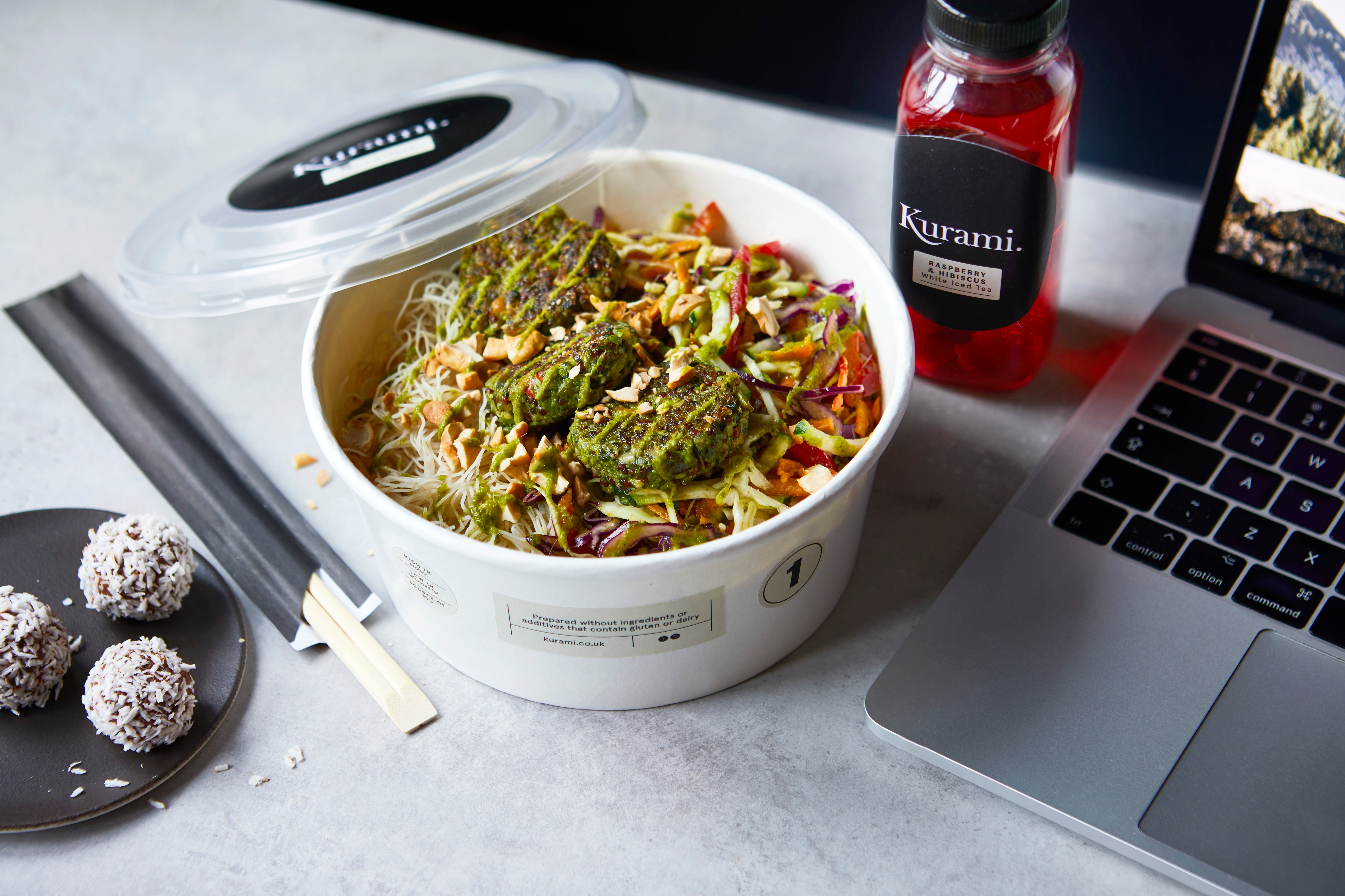
Moving With A Spring In Your Step | A Recipe For Improved Digestion.
Spring is here and the sun is shining (mostly!), which means we are feeling good and getting ready for warmer days, lighter evenings and the gradual easing of lockdown restrictions. We know that all of these positive lifestyle changes are external factors that help to release those happy endorphins, and make us walk with a spring in our step. But what about the factors that affect our internal digestion?
This week we sat down with Dr Ellie Thompson, to discuss the importance of good digestion, what poor digestion may look and feel like, and how to keep on top of it.
Click here to watch the full Instagram live
G: Good morning, Dr Ellie, and thank you for joining us today! Could you start by telling us a bit more about the work you do as a doctor? You have a keen interest in the role nutrition plays in terms of managing patient symptoms, and it would be great to hear more about that.
My name is Ellie and I'm a doctor based in London, in the UK. I work in mental health, Psychiatry, which I find an incredibly interesting speciality and one that is constantly evolving. When I was at Medical school I was starting to realise that nutrition is something I'm passionate about however we don't learn all that much about it. So, I took some time out to study Nutrition whilst at Medical school and it is something I found valuable and really important in my every day practice. With regards to Psychiatry, dealing with some of our patients diet and eating habits is really so important. As we learn more about the development of chronic disease, we are better understanding that nutrition and lifestyle plays such a key part in that, and I think It is such an important insight to have as a doctor in order to share that knowledge with patients.
G: Absolutely. Food is so encompassing in our daily lives, however when it comes to giving advice it can be quite segregated in the way we see health. We see health as different systems, specialities, even within nutrition, eye health, bone health for example, but it should be considered quite holistically.
Definitely. We're starting to realise lifestyle factors are so important in the development of cancer, type 2 diabetes and all sorts of things. There is a whole field of lifestyle medicine opening up, which basically means looking at your diet, sleep, stress levels and really understanding the importance of these.
G: You do have a key interest in digestion. How would you see the link between psychiatry and digestion?
In my general everyday clinical practice I work in general adult Psychiatry, so a lot of the things I see everyday are mood disorders, whether that be depression, anxiety or bipolar, and I don't come across digestion in the way I would as if I were would working in eating disorders. However, we always ask patients about their lifestyle and eating habits. The Royal College of Psychiatrists are starting to encourage us to place a lot more emphasis on this in our discussions with patients. Patients with mental health disorders are more likely to have issues with their weight and their food, and we all know that if you're feeling down or tired, sometimes you don't want to eat food at all or you go the opposite way and want to eat slightly more. Also, some of the medications we use can cause changes in the way we eat, so it is really important to have these discussions with patients and see the whole picture.
G: What are the most common issues and conditions that you come across in practice?
Common digestive complaints can include bloating, a change in bowel habits, stomach pains, and then problems with the upper gut including belching and indigestion. And with all of these symptoms it's really important to get to the bottom of what is causing them. If the patient comes in with a particular symptom, it's important that we run tests and rule out anything abnormal. The most common digestive issue is Irritable Bowel Syndrome (IBS), which is a functional bowel disorder. Then you also have inflammatory bowel disease which is inflammation in the gut lining, and a small portion of people may also have coeliac.
G: And how often do those kind of issues get referred to you?
In general psychiatry, patients I am dealing with may tell me that they have problems with their appetite or that they are eating more so than normal, or, they may be experiencing some bloating since a diet change or new medication.
G: You talked about the mind-gut connection earlier. Would you be able to talk a bit more about that?
It is such an intricate and complex topic. We've always had an idea that the gut and the brain are linked, for so long we've heard the saying 'butterflies in our stomach'. However, it's only recently we've started to learn actually what is going on, and scientists have discovered the gut brain axis, which is essentially the communication between the gut and the brain. They call this communication pathway bidirectional, which means the brain communicates with the gut and the gut communicates with the brain. They've also recently discovered that this pathway involves a number of systems in the body, for example, the nervous system is one, and the hormone (endocrine) system is another, and the immune system is also linked. This is quite a new discovery, but we are learning more about it all the time. There are two kinds of nervous systems in the body, one is called the parasympathetic and one is the sympathetic, and the parasympathetic comes into play when we're all relaxed, and it's what we call our rest and digest system. And the sympathetic is the opposite, so if we're under a stress, so that might be running a marathon or, you know, overloaded with work, or just really stressed and not sleeping, then the sympathetic comes into play. And they work together. So one is up regulated, and the other is down regulated.
G: We know that the recommendation of 30g of fibre a day can be challenging to translate. How would you approach this if a patient came to you with an issue and wanted to make changes in their diet?
I would say to consume as many plant based, high fibre foods as possible. So I'd always say with every meal to try and get a form of fibre in there. For example, vegetables, and maybe a slice of wholemeal toast for breakfast. We know how important fibre is in gut health, and we know it keeps us fuller for longer and supports the movement of digestion. That is a key step. If someone is asking me about their diet specifically, I often ask what they already eat to try and make simple changes. Protein is also important, if you are vegetarian or vegan, pulses legumes, and tofu are good options. And, if you eat meat, think lean protein, poultry, and eggs. Also healthy fats, for example from nuts or oily fish. I know Kurami focus on fibre so much, and it is so important and can be overlooked, but we should be thinking about with every meal.
Thinking about whole foods, try simple things, for example brown bread over white bread, porridge oats over sugary cereal. Try to eat less processed foods and less refined sugars, and focus on diet diversity and fibre. This is what we are learning is the most important thing. Rather than prebiotic tablets, we're learning if you're consuming high fibre foods and a whole food diet, you don't need to be supplementing. All the foods we eat are prebiotic in their nature. The correlation between the diversity of the bacteria in our gut is related to the diversity of the foods we put in it.
G: At Kurami we've introduced plant points, which is to highlight the variety and different plant foods that we include in our meal plans. So do watch this space when you are having your Kurami meal kit next.
Could you share some advice that you would give our audience if they were to go shopping at the end of the day and are thinking about foods that nourish their gut. What tips would you give?
I would say diversity. Lots of plant based foods. choose a whole grain, a brown rice or pasta and then a vegetable. We know that garlic and onions are high prebiotic foods as well, so great and nourishing for flavour. And then go home and add some store cupboard ingredients to your evening meal. I would also say to try and avoid too much alcohol. We know the government has recommendations, but I would say to try avoid a glass of wine every evening with your meal. It is generally known that alcohol has large effects on our mind and sleep, which are all related to our gut health. And for that reason I would say be mindful of alcohol. Many people speak about common bloating and for that I would say to avoid carbonated drinks and drinking through a straw to limit your symptoms. These simple swaps can be beneficial and lot's of people don't necessarily know about this.



